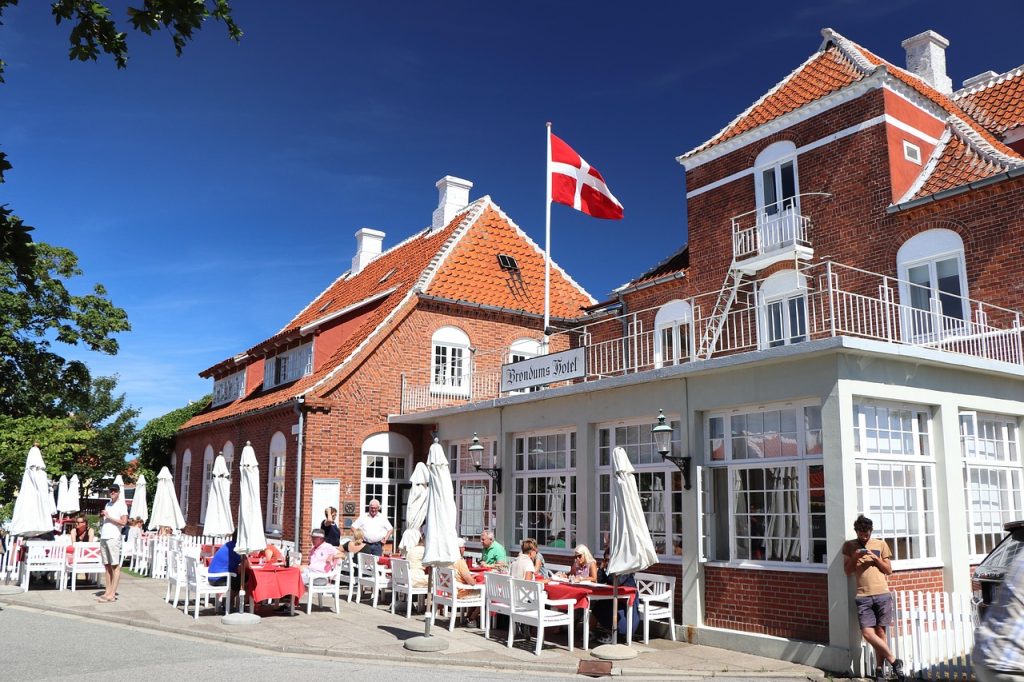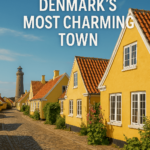Table of Contents
- Why Denmark is the Happiest Country
- Work-Life Balance in Denmark
- Strong Social Support Systems
- Cultural Values and Trust
- Natural Beauty and Outdoor Lifestyle
- FAQs About Happiness in Denmark
Estimated reading time: 7 minutes
Why Denmark is the Happiest Country?
When you think of happiness, what comes to mind? For many, Denmark is the epitome of a joyful and content nation.
Consistently ranking at the top of the World Happiness Report, Denmark has become a beacon of well-being and satisfaction.
But what makes this Scandinavian country so special? Let’s dive into the secrets behind Denmark’s happiness and explore why it’s considered one of the happiest places on Earth.
Why Denmark is the Happiest Country
Denmark’s happiness isn’t just a fluke—it’s the result of a combination of factors that create a high quality of life for its citizens.
From its robust social systems to its cultural values, Denmark has mastered the art of fostering happiness. Here’s a closer look at what sets this country apart.
The Role of the Welfare State
Denmark’s welfare state ensures that its citizens have access to healthcare, education, and social security.
This safety net reduces stress and allows people to focus on their personal lives rather than worrying about basic needs.
Did you know that Denmark spends approximately 29% of its GDP on social welfare programs?1 This level of support is a game-changer for overall happiness.
Low Income Inequality
Another key factor is Denmark’s low income inequality. The Gini coefficient, which measures income distribution, is one of the lowest in the world at 0.26.2
This means that wealth is more evenly distributed, creating a sense of fairness and stability among the population.
Work-Life Balance in Denmark
Ever feel like work takes over your life? In Denmark, that’s less of a concern. The Danish work culture emphasizes a healthy balance between professional and personal life.

Shorter Workweeks
The average workweek in Denmark is around 37 hours, one of the shortest in the world.3 This allows Danes to spend more time with their families, pursue hobbies, and relax.
Imagine having the time to enjoy life outside of work—this is a reality for many in Denmark.
Flexible Work Arrangements
Flexible work hours and remote work options are commonplace in Denmark. Employers prioritize productivity and well-being over rigid schedules.
This flexibility contributes to lower stress levels and higher job satisfaction.
Strong Social Support Systems
Denmark’s happiness is also rooted in its strong social support systems. The sense of community and trust among Danes plays a significant role in their well-being.
High Levels of Trust
Denmark consistently ranks high in trust surveys. Nearly 75% of Danes say they trust most people, one of the highest rates globally.4
This trust fosters a sense of security and cooperation, making social interactions more positive and meaningful.
Community Engagement
From local clubs to volunteer organizations, Danes are actively engaged in their communities. This sense of belonging and purpose further enhances their happiness.
It’s not just about individual success—it’s about contributing to the greater good.
Cultural Values and Trust
Denmark’s cultural values are another pillar of its happiness. The concept of “hygge,” which translates to coziness and contentment, is deeply ingrained in Danish life.
The Importance of Hygge
Hygge is about creating a warm and inviting atmosphere, whether it’s with family, friends, or even alone.
It’s a mindset that encourages mindfulness and appreciation for the simple things in life. This cultural practice helps Danes find joy in everyday moments.
Emphasis on Equality
Equality is a core value in Denmark. Whether it’s gender equality or equal opportunities, Danes believe in treating everyone fairly.
This fosters a sense of respect and inclusion, which contributes to overall happiness.
Natural Beauty and Outdoor Lifestyle
Denmark’s nature and emphasis on outdoor activities also play a role in its happiness. The country’s natural beauty provides a serene backdrop for daily life.
Access to Nature
With its coastline, forests, and parks, Denmark offers plenty of opportunities to connect with nature.
Studies show that spending time outdoors can reduce stress and improve mental health.5 Danes take full advantage of this, with biking and walking being popular activities.
Sustainable Living
Denmark is a leader in sustainability, which aligns with its citizens’ values. Clean energy initiatives, eco-friendly transportation, and green spaces contribute to a healthier and more fulfilling lifestyle.
FAQs About Happiness in Denmark
What makes Denmark the happiest country?
Denmark’s happiness is a result of its strong welfare state, low income inequality, work-life balance, social support systems, cultural values, and natural beauty.
How does the welfare state contribute to happiness in Denmark?
The welfare state ensures access to healthcare, education, and social security, reducing stress and allowing people to focus on personal well-being.
What is the role of “hygge” in Danish happiness?
Hygge, or coziness, encourages mindfulness and appreciation for simple pleasures, fostering contentment and joy in everyday life.
Why is trust important in Denmark?
High levels of trust create a sense of security and cooperation, making social interactions more positive and meaningful.
How does Denmark promote work-life balance?
Shorter workweeks, flexible hours, and remote work options allow Danes to prioritize personal time and well-being.
Conclusion
Denmark’s happiness is no accident—it’s the result of intentional policies, cultural values, and a strong sense of community.
Whether it’s the welfare state, work-life balance, or the concept of hygge, Denmark offers valuable lessons in living a joyful and fulfilling life.
1 OECD (2022). Social Expenditure Database.
2 World Bank (2023). Gini Coefficient Data.
3 Eurostat (2023). Average Weekly Working Hours.
4 World Values Survey (2022). Trust Levels in Denmark.
5 University of East Anglia (2021). Benefits of Nature on Mental Health.







Pingback: What Denmark is known for? What famous things are from Denmark? – All you need to know about Denmark